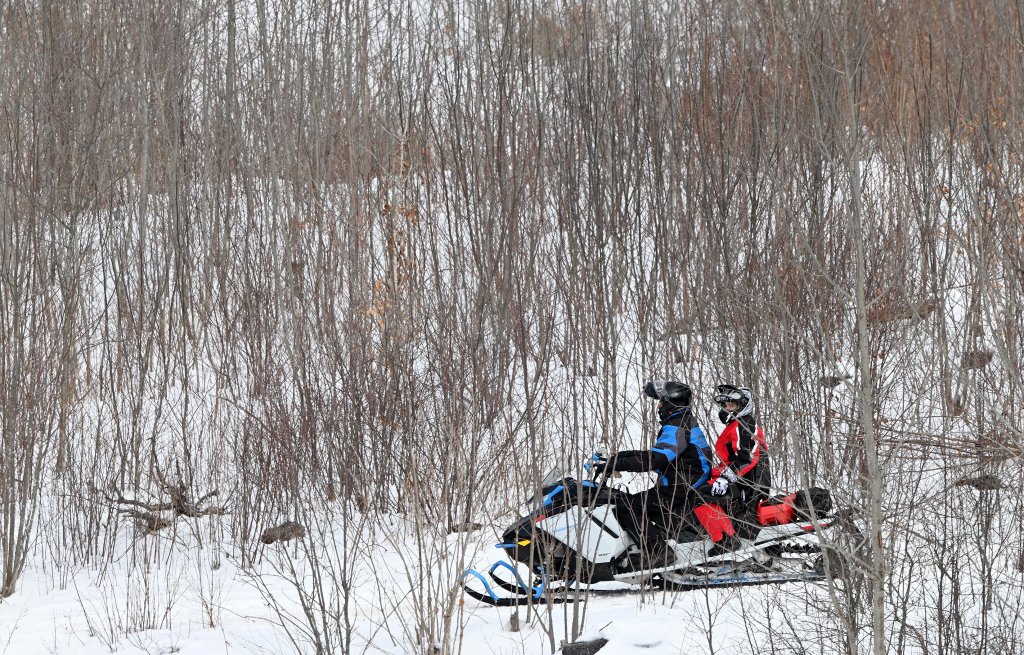
When Jason Johnston began teaching ecology classes at the University of Maine at Presque Isle, the robins that made their nests on campus were reliable snowbirds, flying south each fall semester to escape the cold.
The ornithologist wouldn’t hear their telltale whistle again until spring. But now, two decades later, some of the robins usually stick around all winter. It just doesn’t get cold enough to make an exhausting flight as far south as Mexico worth the effort.
“I love to see them, but it’s not something that used to happen,” Johnston said. “I remember first seeing a winter robin in Maine as a grad student and it was a big deal. Then, when I started at Presque Isle, a few stayed. Now it’s unusual to not see most of them all winter.”
The overwintering robins offer anecdotal confirmation of a decades-long climate trend: New England winters are warming. And that warming is happening faster here than in most of the rest of the nation, according to new data from Climate Central, a science research nonprofit.
Presque Isle, a small city of 8,700 on Maine’s eastern border with Canada, is at the forefront of that winter warming trend. The average temperature in Presque Isle from December through February is about 6.5 degrees warmer now than it was in 1970, according to Climate Central.
That puts Presque Isle in a tie for the eighth-fastest warming winter among the 244 U.S. cities tracked. Also monitored were Portland and Bangor, which have temperature increases of 5.5 and 4.1 degrees, respectively. The national average is 3.9 degrees.
Most of the tracked cities now have at least seven more unusually warm winter days than they did in 1970. Portland has three times that amount, adding three extra weeks of unusually warm winter days. Presque Isle added 19 such days, while Bangor added 13 days.
The Climate Central study tracks long-term climate trends, but weather can vary greatly from year to year. The National Weather Service is predicting a typical Maine winter this year, with temperatures and precipitation that Mainers have come to expect.
Our coldest days aren’t as cold and our deep freezes aren’t lasting as long, said Sean Birkel, Maine state climatologist. The state’s climate plan spells out the consequences: strained water supplies, impassable logging roads and a decline in the snowfall that drives the region’s winter tourism.
As Maine continues to warm, winter seasons are becoming shorter and summer is becoming longer, according to the Maine Climate Office. Warming faster than any other season, Maine’s winters are now two weeks shorter than they were in the early 1900s, data shows.
These changes will only be amplified in the future. Climate models project Maine may be 2 to 4 degrees hotter by 2050 and up to 10 degrees hotter by 2100, depending on the effectiveness of global efforts to reduce the heat-trapping emissions caused by the burning of fossil fuels.
A lack of snow can put a real dent in Caston Lovely’s winter plans. The Presque Isle man runs the local snowmobile club, which maintains about 100 miles of groomed trails, and rents a house and two apartments to visiting snowmobilers, some from as far away as Pennsylvania.
He said the winters in Presque Isle are changing. There are still days of bitter cold and deep snow, but they will be broken up by warm days that turn the snow to slush and make it hard to maintain the trails. One or two thaws will prompt some winter visitors to cancel their visits.
“Winter is more of a mixed bag now than one long, cold season,” Lovely said. “Last year, we had a 20-below day followed by a 50-degree day. It makes you wonder why the Earth isn’t just splitting open. The weather is a very dramatic thing that we can’t understand.”
The trickledown impact can spill over into the spring, worsening allergies and putting irrigation strains on area farmers, some of whom count on the winter cold to limit the population of agricultural pests, like aphids, and replenish the groundwater they use to supply their irrigation systems.
It’s not all bad, though. Warmer winters mean towns can spend less money plowing their roads and homeowners may not have to spend as much to heat their homes, although some scientists argue the rising cost of cooling them during the summer may offset the utility savings.
But winter isn’t going anywhere anytime soon, said Climate Central meteorologist Shel Winkley.
“Winter is still around,” Winkley said. “It’s just starting to lose its cool.”

We invite you to add your comments. We encourage a thoughtful exchange of ideas and information on this website. By joining the conversation, you are agreeing to our commenting policy and terms of use. More information is found on our FAQs. You can modify your screen name here.
Comments are managed by our staff during regular business hours Monday through Friday as well as limited hours on Saturday and Sunday. Comments held for moderation outside of those hours may take longer to approve.
Join the Conversation
Please sign into your CentralMaine.com account to participate in conversations below. If you do not have an account, you can register or subscribe. Questions? Please see our FAQs.